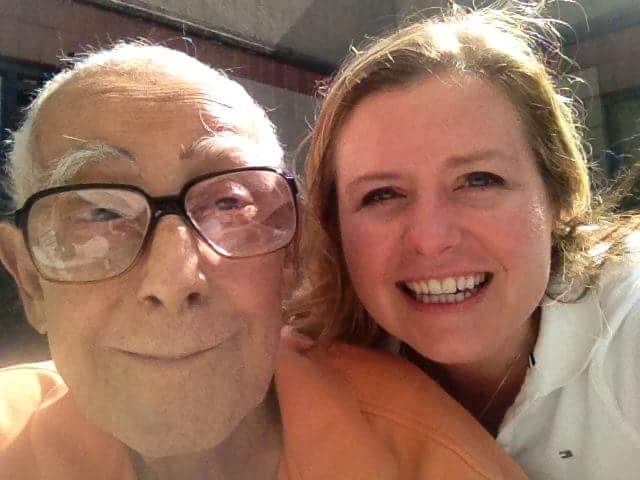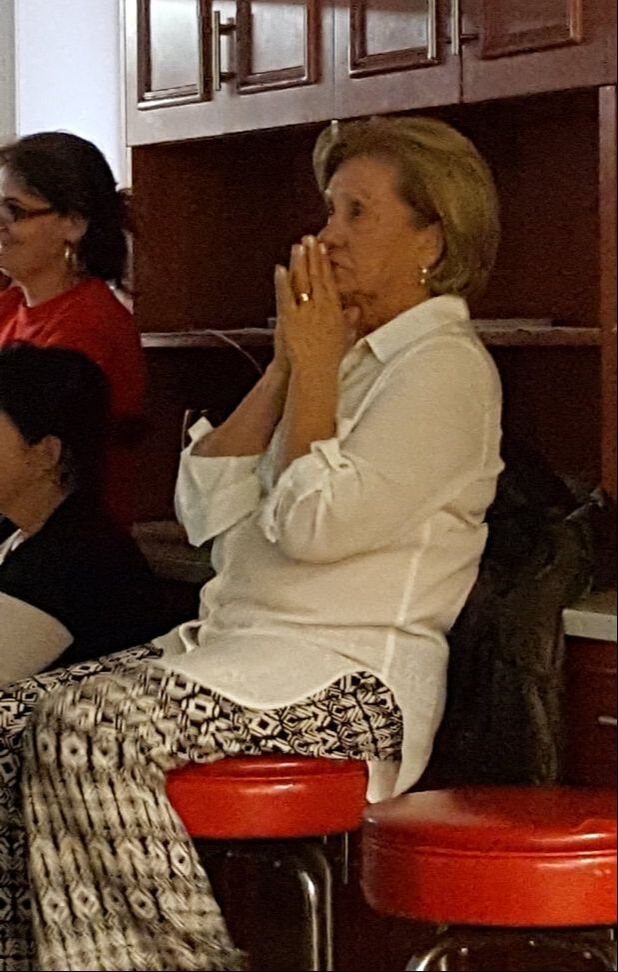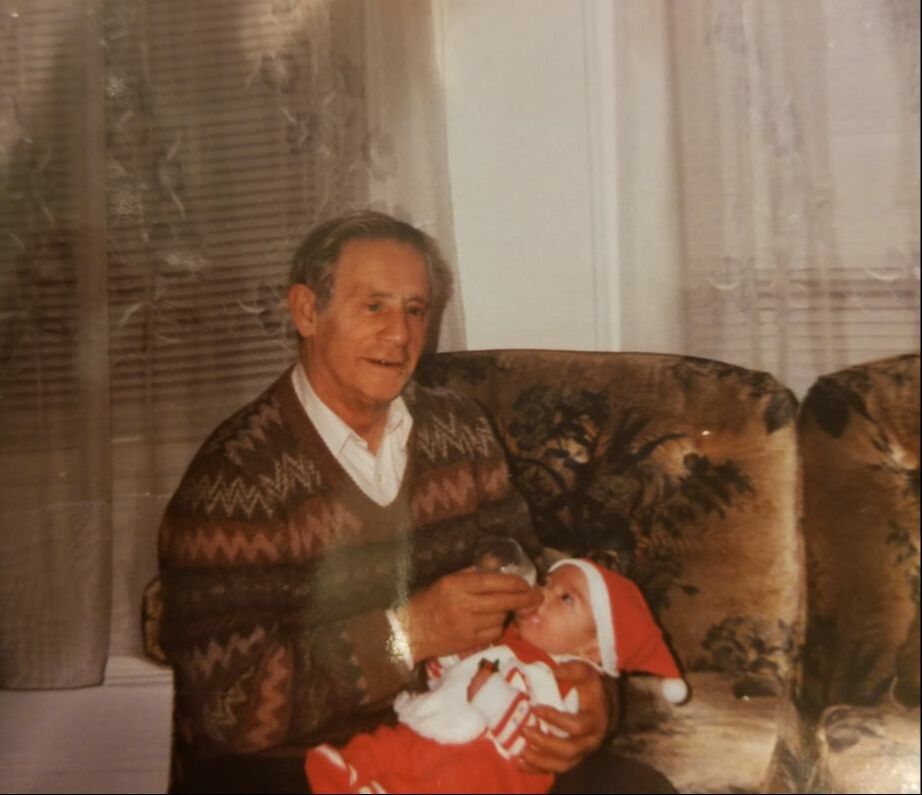|
As people are living longer than ever before, the need to care for our elders is increasing. Having worked in healthcare for a long time, I have noticed some trends in how we view people in their eighties and above. Perhaps those in my line of work are a smidge more understanding in dealing with people in this age bracket; but even those who excel at caring for the elderly would be lying if they said it is easy to understand or have endless patience for people older than eighty. We are all guilty of becoming irritated with those who take too long to push their carts in the grocery store, expound on lengthy tales of health maladies and doctor’s appointments and who remind us that we don’t understand the hardships that these eighty-somethings have endured. But there is another way to view this age gap, one where we can meet older people as versions of who we might become one day. This opens up an entirely new dialogue of commonality between “us and them”. Below are some theories on aging that might facilitate improved respect and understanding between those in mid-life and those nearing the end of theirs. Lots of older people have no idea that they would fall into the category of being “elderly”. They remark on the appearance of their contemporaries, they label others as ‘old’, but they do not classify themselves as such. In my days of working in a nursing home, the staff often encouraged new members of the facility to hang out in the Day Room and make friends with the other residents. What we heard all of the time was the same statement in reply: “I don’t want to hang out with these people. They are all so old!” I have asked many people who are under 80 years of age as to why this might be. Perhaps it is denial. No one wants to face their own mortality. But maybe a bigger and more existential explanation for this refusal to accept advanced age is evolutionary; maybe we need to deny our proximity to death in order to stay in survival mode. This may help us keep living and not give up. Another simpler rationale could be that the minds of eighty-somethings are often quite keen. Maybe their minds have not aged along with their bodies and they just don’t feel old. While this can aggravate the young, it could be one of the greatest blessings of old age that exists. For newlyweds, the master bedroom and living room might be the only two rooms that are used. Lust and companionship on the couch are where this couple will reside at this stage. Once children are born, the family will move into the kitchen with a hearth for cooking. The library will be important, as children do homework and learn the academics that take them through their youth. The bedrooms surrounding the kitchen will also be in use, so that the children are close to their parents. This young family is taking up the center of the home for the functions needed to raise that family. As the children move out and the couple reaches midlife, the kitchen and central living space may not be utilized as frequently. The couple might retire from outside work and spend time in various other wings of the mansion, while pursuing new interests, often apart from each other. The basement might be utilized for hobbies, or the outdoor grounds for cultivating a garden. Towards the end of life, the inhabitants of the home, if there are still two, will begin to go up the narrow and creaky attic staircases. He or she will begin to open the chests of the past. She will uncover the dust of her lineage. He will sort through old letters and photographs and begin to make links between his story and the story of his ancestors, contrasted against the reality of the lives of his grandchildren. These eighty-somethings can look through the highest windows in the house and see the vista of the land. They can make arcs of consciousness that they were unable to see when they lived in the heart of the mansion. Which leads to the next point…
When I spend time with them, they often tell me that whatever it is that I am worried about on a given day in this stage of my life is utter bullshit and will likely be inconsequential in the grand scheme of things. They remind me that they have lived through wars, through losing friends and loved ones to death and through the loss of their health. They smile as they show me their childhood photos and say, “Your life is going to go so fast, you have no idea. Time passes more quickly for me than it does for you, which sounds strange, because I do a lot more sitting and thinking than working. Life is so fleeting. Stop worrying so much and live in the moment. Don’t hold grudges against your parents. If they are both still alive, you are lucky. Take trips now. See the world. Don’t put too much money in your retirement fund, because a nursing home will take it anyway. Work hard, because work is what will sustain you. When you can no longer work, you will miss it. Your children will never do what you tell them to do. And that is okay. I never did what my parents wanted me to do. Reach out to the people who you don’t like, because you can learn from them. If they don’t reach back to you, then that is fine. You can’t change other people. You can only change yourself. Keep moving, in any way you can: physically, mentally, emotionally. Go on a walk after a major surgery, even when you think you can’t. Find the parts within yourself that you don’t like. Learn to like them anyway. Look for beauty in the world. It will seem impossible sometimes, but the craggy landscape of your soul is evidence of some sort of Higher Being. This knowledge will come to you when you are my age, but wouldn’t you rather want to know it before then?” Maybe it is because they are not concerned about being old. No amount of meditation or mindfulness can get us to a place of expansive omniscience if we are too young to be there. We haven’t yet earned that perch in the rafters of the top floor. But wait…what if we did go up to the attic, before our time? What if we tried to make peace with “the craggy landscape of the soul”, and stopped worrying so much about becoming old? While nobody wants to fast-forward time and get older, maybe we could recognize our wrinkles and achy joints and ability to look at the entire landscape as heralding something worth celebrating. Perhaps we could listen to those in their later years as they console us, we could relish in their memories, and we might gain a glimpse of the broad vista which will await us one day. We should all make a sojourn into the attic of the mansion, especially when we think we are too young to bother. We should try to prepare as best as we can for living under those sloping ceilings and attempt to age well. We should also remember that one day, we will be just like all of the other eighty-somethings, and we will not know that we are old. Get back to me in a few decades and let me know if this is true for you. Though you likely won’t acknowledge it. Your grandchildren will roll their eyes and say that you are living in the 1980’s. From the viewpoint of your grandchildren, they will be correct. But as for you, you will nod your head and think, “I remember living in that part of the mansion. It was great! But this attic is quite lovely, too…” May you hear the footsteps of the next generation come up those creaky stairs to find you and listen.
Comments are closed.
|
Archives
October 2021
Categories
All
|



